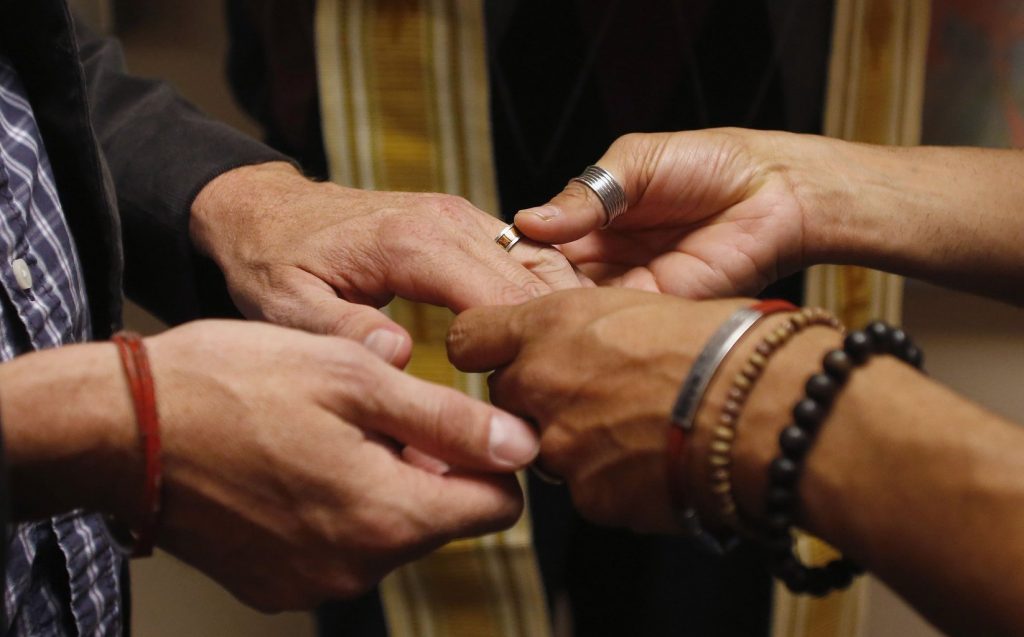If you were wondering what became of moral legalism, wonder no more — legalistic thinking has found its home in the media. Coverage and commentary regarding Pope Francis’ recent remarks about civil unions for homosexuals abounded in it, making it sound as if Catholic moral doctrine were a product of papal decree.
Legalism is the erroneous view that moral norms are rules — a legal code of do’s and don’ts forever subject to change by a ruler-maker. This makes it a handy device for dismissing norms one doesn’t like — the “rule” against contraception, for instance, or the “law” forbidding remarriage after divorce. Authentic norms like these are not rules, however, but statements of moral truth.
Which brings us to the hubbub that greeted the pope’s remark.
For anyone who may have missed it, a new documentary film about Pope Francis quotes him as favoring legally recognized civil unions as a way to give legal shelter to same-sex couples. The pope said this: “What we have to create is a civil union law. That way they are legally covered.”
Leave aside whether civil unions for homosexuals are or aren’t a good idea. A strong case can be made on both sides of that argument. In the United States, however, the question itself is beside the point, since the Supreme Court, in a moralistic exercise of judicial legislating five years ago, went beyond civil unions and imposed same-sex marriage — something the pope has repeatedly opposed — on the entire country.
But that’s history. My subject now is the way the pope’s off-the-cuff endorsement of civil unions was taken by some as heralding a change in doctrine — the assumption being that Church doctrine on homosexuality can be changed by papal fiat, very much as the Supreme Court in its 5-4 decision made same-sex marriage the law of the land.
A few examples will serve to illustrate this misunderstanding.
In her initial report from Rome, National Public Radio’s correspondent skipped the what-ifs and jumped with both feet into the assertion that what Pope Francis had said was “a break from Church doctrine.” New York magazine, noting the not uncommon view of civil unions as a “way station” to same-sex marriage, said “time will tell” whether the pope was in fact “in the process of changing Catholic doctrine.” And a Washington Post editorial, indulging in an odd verbal straddle, speculated on whether the pope’s latest remarks would “lead to a change in the church’s doctrinal policy.”
Note that word “policy.” To equate the Church’s doctrine with policy is classic legalism. After all, policies are set, amended, and sometimes abolished by decision-makers acting according to their best lights. Whereas the Church holds that in authoritatively teaching moral doctrine — whether on homosexuality or anything else — it isn’t merely setting policy but stating moral truth.
The bottom line is that moral norms aren’t established by decree, much less, as in this case, by edited papal remarks in a movie. Norms are products of theological reflection carried on in the light of revelation. The process, as St. John Henry Newman famously said, is “development,” not change.
So what does the Church teach about homosexuality? For the answer, turn to the Catechism of the Catholic Church. While saying homosexuals should be treated with “respect, compassion, and sensitivity,” the catechism declares that homosexual acts are gravely wrong and “under no circumstances can they be approved” (CCC 2357). And civil unions? About them, the catechism is silent, leaving this as a policy question on which people who accept the doctrine can disagree.

